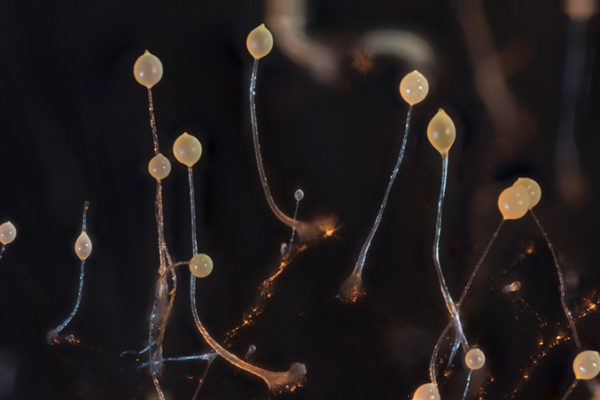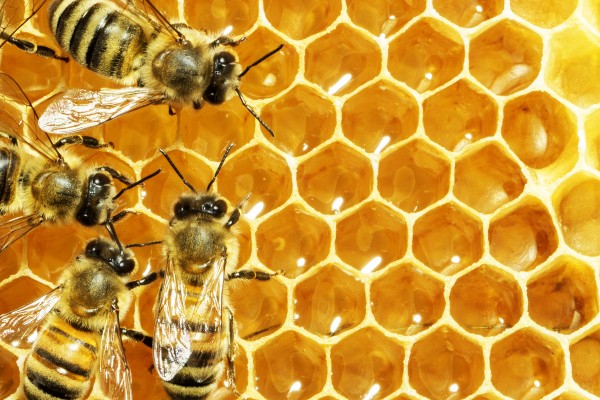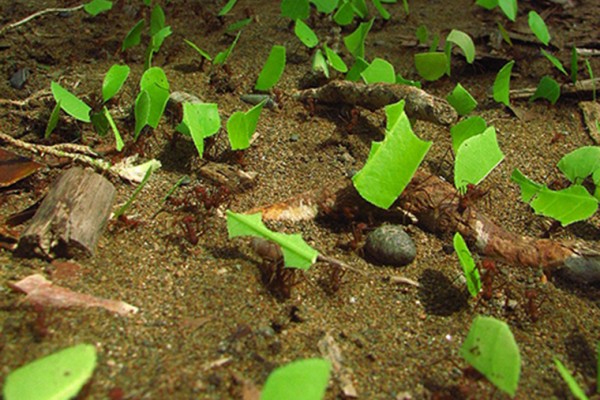Arms races and cooperation among amoebae in the wild
Using new gene sequencing techniques, Washington University biologists are taking a closer look at the behavior of the social amoeba Dictyostelium discoideum, or Dicty for short.
The secret life of bee genes
Genes inherited from mothers (matrigenes) and fathers (patrigenes) usually work harmoniously in the offspring. However, kin selection theory predicts these genes may be in conflict in interactions among relatives in which they are unequally represented (half-siblings). In honey bees, patrigenes are predicted to favor daughters that lay eggs themselves rather than remaining sterile and rearing their half-sisters’ offspring. An experimental test bears out this prediction.
Is blood really thicker than water?
The outcome of a duel between mathematical models supports the reigning theory of the genetics of altruism. Called inclusive fitness, it says altruism is competitive if it benefits relatives carrying the same gene as the selfless individual. Attacked by a Nature article published in 2010, it is defended by Washington University evolutionary biologist David Queller.
Winners of the Social Entrepreneurship & Innovation Competition showcase the business of nonprofits
The winners of the second annual SEIC awards will be announced May 3, 2007 at 6 p.m. in May Auditorium, Simon Hall on Washington University’s Hilltop Campus. A total of $125,000 will be awarded to the nonprofit teams who have successfully proven that their ventures have social value and they have the ability to implement their plans. Leslie D. Michelson is the keynote speaker for the event. He is the founder, CEO, investor, advisor, and director for a portfolio of entrepreneurial healthcare, technology and real estate companies
Social Entrepreneurship competition finalists to be selected March 30
Thursday, March 30 at 5 p.m., the finalists will be selected and announced for the Social Entrepreneurship and Innovation Competition, co-sponsored by Washington University and the YouthBridge Association. The event features Theresa Wilson, founder of The Blessing Basket, as a keynote speaker. Currently there are 14 semi-finalists. The finalists will be selected based on their two-minute presentations about their projects. The event takes place in May Auditorium in Simon Hall on the Washington University Hilltop Campus
Survival of the fittest? Anthropologist suggests the nicest prevail not just the selfish
Are humans inherently good? The prevailing view in popular and scientific literature is that humans and animals are genetically driven to compete for survival, thus making all social interaction inherently selfish. According to this line of reasoning, known as sociobiology, even seemingly unselfish acts of altruism merely represent a species’ strategy to survive and preserve its genes. But Robert W. Sussman, Ph.D., a professor of anthropology in Arts & Sciences at Washington University in St. Louis, argues that this is a narrow and simplistic view of evolutionary theory that fails to explain many aspects of sociality among mammals in general and primates in particular. In “The Origins and Nature of Sociality,” a new book Sussman co-edited, he and other researchers challenge the proponents of sociobiology. “The ‘selfish gene’ hypothesis is inadequate,” Sussman says.



